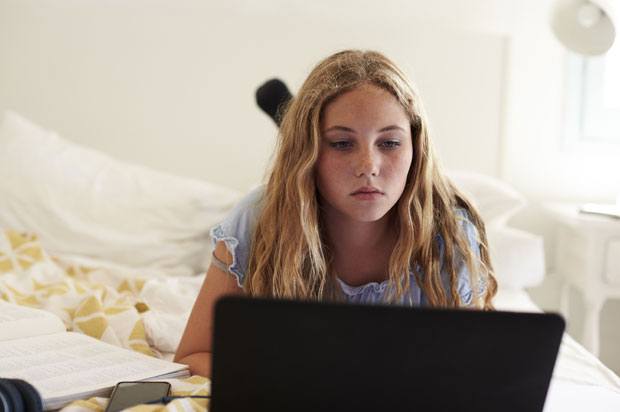How to protect your mental health online
Many of us get all of our information online, which can be a little overwhelming at times. Whether it’s the news that’s getting you down, or a constant social media stream that has you comparing yourself to your friends and strangers, it can all be a bit much. The Mix explores how to look after your mental health online.

Social media gives us validation but it can also heighten underlying mental health problems.
Protecting mental health whilst using social media
Social media and the internet in general is an amazing way of keeping in touch with friends and letting them know what you’re up to. There are plenty of positives to focus on but it’s also important to consider how overuse of social media or exposure to offensive content can negatively affect your mental health. It’s important to protect your mental health online – see how.
I’m addicted to social media, what can I do?
It feels great when someone likes your post or follows you online. The downside is that we can get addicted to that feeling of validation.
Constantly refreshing feeds for new posts, messages and likes can make us feel awful. It can also heighten underlying feelings of anxiety and depression. Just like any addictive behaviour: if it begins to take over your life, you need to address it head on:
- Try to take a break from social media every now and again. We know this sounds ridiculous but even a few days away from it will give you space to reflect.
- If you do need to go online, do it the old fashioned way and use a computer. This will make checking your feed a little less accessible, allowing you to worry about it less.
- Make sure you have a balanced social life online and offline. If you feel like you only talk to your friends online, arrange to meet up with them and do something fun.
Remember, even though you feel stressed by social media, it is not the underlying cause for why you’re feeling bad. Speak to your GP if you continue to feel stressed or anxious.
How to cope with online jealousy
Scrolling through feed after feed of seemingly perfect people going about their seemingly perfect lives can be exhausting. Constantly comparing ourselves with others can have negative effects on our self-esteem.
Before you curse yourself for not having your life together like your friends appear to, remember:
No one is the same as how they portray themselves online as we tend to only show the best parts of ourselves.
When you start to feel low think of all the great things you’ve done or are planning to do.
Everyone has good days and bad days. Just because they seem like they’ve got it all together on social media doesn’t mean they do.
Posting responsibly online
While a bit of online banter here and there might seem harmless, it could backfire on you if you post something offensive or inappropriate. Before you press send, ask yourself:
- Do I want to get in trouble with the law? If you send something that could be interpreted as harassment, menacing behaviour, threatening or grossly offensive, your comment may be illegal.
- Will I want people to read this in five years time? Some people have even lost their jobs because of posting something prejudiced or derogatory online.
- Would this hurt or upset the person I’m talking about? Online interaction can leave us numb to the feelings of the person on the other side of the screen but if you wouldn’t say this to them in real life, why say it to them online?
- Does this really represent who I am? If not, ask why you’re writing this.
Remember, you can always contact the individual social media platform or website to edit or delete any old posts you no longer want the world to see.
How to protect yourself from offensive content online
Seeing offensive or disturbing imagery or comments can harm our mental health. We wouldn’t want to hear abusive language or be exposed to violence offline so why should we accept it as normal online.
If you experience anything like this, remember:
- You don’t have to engage with this behaviour. Many social media platforms allow you to block or report users who are harassing you.
- If someone from your school or college is harassing you online, speak to someone you trust about what’s been going on. You don’t have to go through this alone.
- If you would prefer to speak to someone anonymously, you can call ChildLine on their free helpline on 0800 1111.
For more information on online harassment read our article on cyberbullying.
Online coping strategies
We’re always going to use social media so we have to learn how to manage it and use it for good. There are many ways we can use social media to help us feel better:
- Focus on connecting with people who make you feel good about yourself. Check your privacy settings so those people who make you feel bad can’t see your profile.
- Indulge yourself with the lighter side of the internet and share all the pictures of cats and cake that make you feel good.
- Treat people how you’d want to be treated and avoid confrontation.
- Keep creating new things and generally remain awesome online.
Next Steps
- You can talk to Childline about anything. Call them for free on 0800 1111 or visit their website.
- BullyingUK offers advice and support to victims of bullying. Call on 0808 800 2222.
- Chat about this subject on our Discussion Boards.
By Holly Turner
Updated on 01-Apr-2021
Image courtesy of Shutterstock.
No featured article














